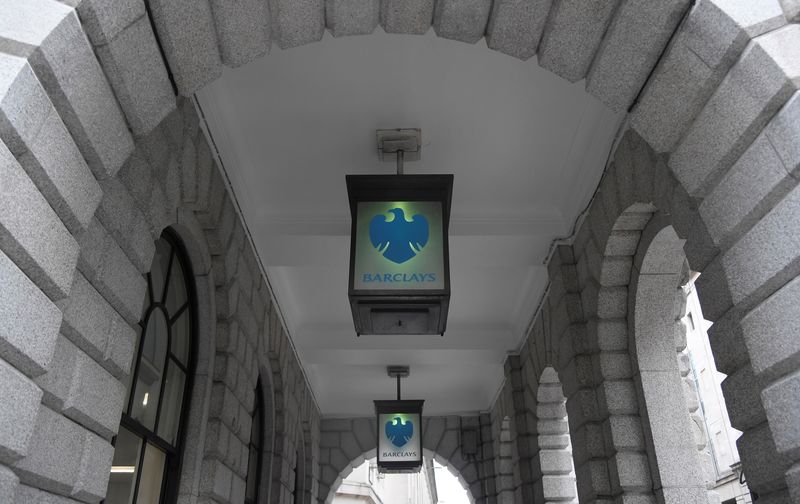By Sinead Cruise and Iain Withers
LONDON (Reuters) -Investment banks are likely to see a shake-up in revenues next year, with a rebound in banking and advisory fees expected to soften a hit from a fall in trading income, Barclays (LON:BARC)' CEO C.S. Venkatakrishnan told an investor event on Tuesday.
A trading surge has helped investment banks report robust results this year and helped to offset a dire year for fees on company flotations and M&A deals amid global market turbulence.
That could be set to change by the second half of next year, Barclays' CEO said.
"Trading revenue pools will probably shrink a bit and investment banking revenue pools will probably rise. Whether they offset each other I don't know," Venkatakrishnan - known internally at Barclays as Venkat - said at a Bank of America (NYSE:BAC) event.
"But I anticipate volatility in the markets continuing at least in the first and second quarter of next year. And so the declining trading revenue pools seasonally adjusted is more likely to happen in the second half of next year."
Venkat said a flurry of interest rate rises in Britain - Barclays' home market - with another rise expected from the Bank of England this week, would eventually cool the economy.
But he said he still expected rate rises to be "a net positive" for Barclays as it boosts income from lending. He said he expected all the bank's three main business units to exceed 10% return on tangible equity - a key measure of profitability for banks - next year.
The British government's plan to cap energy prices to aid people facing squeezed household budgets would help the economy, but Barclays is more cautious on the country's outlook than it is on the United States, Venkat said.
"I think the U.S. economy is showing less signs of weakness," he added.
Venkat also provided an update on an error that resulted in the bank overselling a range of complex financial instruments in breach of U.S. rules.

The bank will give more details on the final costs of its so-called rescission offer to buy back the securities in "relatively short order", Venkat said.
Barclays said last week that investors had submitted claims for $7 billion out of $17.7 billion worth of securities it sold in error, under the terms of the rescission offer by which the bank had to buy back the notes and compensate buyers.